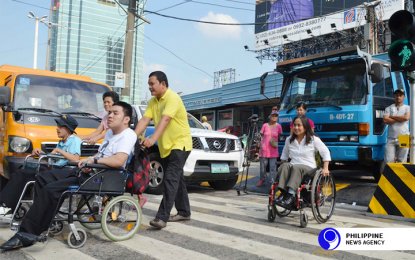
MANILA -- As the Association of Southeast Asian Nations (ASEAN) gears to develop more infrastructures to provide barrier-free tourism to persons with disabilities (PWDs) in the region, the Philippines expresses its full support to the bloc's initiative.
"The Philippines has always been very supportive and now more than ever vigilant in its promotion of the principles of ‘Tourism for All,’ promoting universal accessibility,” said Department of Tourism (DOT) Undersecretary for Tourism Development Planning Benito Bengzon Jr. in a statement.
Creating a barrier-free travel experience for PWDs in the Philippines was the focal point of the ASEAN-Japan Accessible Tourism Seminar hosted last week by the DOT, together with the ASEAN-Japan Center and the National Council on Disability, at the Manila Diamond Hotel.
Participants observed that hospitality services for PWDs are often overlooked by establishments causing hindrances during travel because of limited facilities - from sidewalks, ramps, wheelchair-lifts for cars, to bathrooms, and toilets, including audio and visual guides.
In response to the issues, ASEAN-member states have started creating facilities and identifying infrastructures to be developed in order to provide better accessibility and reduce barriers for PWDs.
During the seminar, representatives from Japan, Myanmar, Thailand, Vietnam and the Philippines presented technological and infrastructure advances, and barrier-free tour products specifically designed for wheelchair users, and visually and hearing-impaired travelers, as well as the areas of improvement in the said aspects.
Jinriki, a Japanese-patented towing bar for wheelchairs, was also introduced at the event. Despite pavement conditions, whether covered with gravel or sand, Chie Nakamura of Iseshima Barrier Free Tour Center said the towing bars enable wheelchairs to move with ease, a tourism product deemed effective for wheelchair users in region.
Areas of focus also identified in providing accessibility to PWDs were transportation, lodging, and architecture, as well as communication aides.
Bengzon said raising awareness on PWD challenges and advocating for their inclusion in travel destinations are the primary goals of accessible tourism.
He said personnel training for establishments and development of programs in consultation with the PWD communities is being promoted to eradicate discrimination towards PWDs and level their inclusion in travel privileges with the rest of the population. (PNA)
